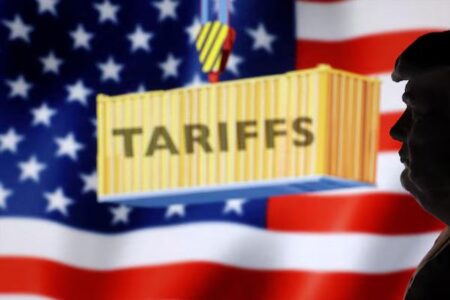In an increasingly polarized global landscape, Canada finds itself navigating complex geopolitical waters as it responds to threats from the United states under former President Donald Trump. Known for its close ties to Europe and its resolute commitment to multilateralism, Canada has suddenly become the subject of intense scrutiny as it grapples with the implications of its relationship with its southern neighbor. Dubbed “the most European non-european country,” Canada is now looking to strengthen alliances both with traditional partners in Europe and emerging allies across the globe. This article delves into the nuanced dynamics of Canada’s foreign policy in the face of American isolationism, examining how the nation seeks to bolster its standing and security in an uncertain world. As leaders weigh options, the potential for alliances and strategies that prioritize stability and cooperation becomes crucial for Canada’s identity as a global player.
Geopolitical Dynamics: Canada’s Role as a Strategic Ally in Transatlantic Relations
The evolving geopolitical landscape necessitates that Canada reaffirm its position as a vital ally in Transatlantic relations. As tensions mount with the United States under its current administration, Canada is positioned to be an essential partner for European nations seeking stability and security. This is particularly crucial in light of increased global challenges, from trade disputes to military pressures. By fostering deepened ties with European countries, Canada not only strengthens its own security but also enhances collective resilience against emerging threats.
- Military Collaboration: Participation in NATO operations and joint military exercises.
- Trade Partnerships: Engaging in robust trade agreements,like CETA,with the European Union.
- Climate Initiatives: Leading environmental alliances addressing climate change impacts globally.
- Cultural Exchanges: Promoting educational programs and citizen diplomacy to foster understanding.
As Canada navigates its unique identity as the “most European non-European country,” it can leverage its historical ties and shared values with European allies to champion democratic ideals and human rights on the global stage. This collaboration transcends mere diplomacy, as it involves active participation in global governance initiatives and an unwavering commitment to multilateralism. Such efforts reinforce the bond between North America and Europe, ensuring that Canada remains an indispensable ally amid uncertainty in cross-Atlantic relations.

Navigating Threats: How Canada is Adapting to Increased Tensions from the U.S
In response to rising tensions and unpredictable rhetoric from the U.S., Canada has sharpened its diplomatic efforts, looking to strengthen ties with its traditional allies. The increasing hostility, frequently enough exemplified by inflammatory statements from figures like former President Trump, has prompted Canadian leaders to reassess their international strategy. Key initiatives include:
- Engaging more deeply with NATO and the European Union.
- Boosting trade negotiations with non-American partners to diversify economic dependencies.
- Enhancing intelligence-sharing agreements with allies to bolster national security.
As part of this strategic pivot, Canada is also working to solidify its defenses, particularly in light of trade disputes and military posturing in shared waters. Diplomats have been proactive in hosting forums to address mutual concerns and underscore Canada’s commitment to upholding democratic values in North America and beyond. To illustrate this shift in focus, the following table summarizes recent military and economic collaborations involving Canada:
| Collaboration Type | Involved Countries | Objective |
|---|---|---|
| Joint Military Exercises | Canada, UK, France | Enhance readiness against threats |
| Trade Agreements | Canada, EU | Diversify trade partnerships |
| Intelligence sharing | Canada, Australia, US | Strengthen security networks |

Strengthening Alliances: Collaborative Efforts with European Partners Amidst Policy Uncertainty
As Canada navigates the choppy waters of geostrategic uncertainty, bolstering its alliances with European nations has become a critical strategy amidst shifting political landscapes. The shifting relationship with the United States under the Trump administration has prompted Canadian officials to seek closer cooperation with Europe, emphasizing the importance of a unified front.This initiative focuses on areas such as trade, security, and climate change, where collective action can bolster mutual interests and mitigate risks posed by unilateral decisions from the south. Some primary areas of collaboration include:
- Trade Agreements: Strengthening existing agreements and exploring new partnerships to enhance economic ties.
- Security Cooperation: Increasing joint military exercises and intelligence sharing to counteract global threats.
- Climate Action: Coordinating on innovative policies and a collective response to climate change initiatives.
To further solidify these alliances,Canada has initiated high-level dialogues and engagements,facilitating platforms for leaders from both sides of the Atlantic to voice their concerns and aspirations. Such platforms not only serve as a constructive space for discussing policy options but also allow for the building of personal relationships among top officials, which is frequently enough a critical component in diplomatic negotiations. A recent roundtable discussion included leaders from key European countries and Canadian ministers, focusing on the establishment of a strategic framework for future collaboration.The following table summarizes the key areas of focus:
| Area of focus | Key Initiatives | Expected Outcomes |
|---|---|---|
| Trade | Enhanced market access, tariff reductions | Increased bilateral trade volume |
| security | Joint military drills, cybersecurity collaboration | Greater regional stability |
| Habitat | Shared technology ventures, action plans for emissions reductions | Leadership in global climate commitments |

Future Strategies: Recommendations for Canada to Enhance Global Security and Trade Relationships
As Canada navigates a precarious geopolitical landscape, it is imperative to adopt preemptive strategies that bolster both security and international trade.Engaging in multilateral diplomacy with allies offers a pathway to strengthen collective responses to emerging threats. By enhancing partnerships through organizations like NATO and the G7,Canada can assert a stronger position on global security issues.Moreover, fostering bilateral trade agreements with key partners will not only mitigate the risks posed by fluctuating trade relations but also enhance Canada’s economic resilience. Focus areas should include:
- Strengthening Integrated Defense Initiatives: Collaborating with partners on defense technologies and intelligence-sharing.
- Promoting Sustainable Trade Practices: Aligning trade policies with environmental sustainability to appeal to environmentally-conscious economies.
- Investing in Cybersecurity: Building infrastructure and capacity to protect against cyber threats which are increasingly prevalent.
To further consolidate its strategic relationships, Canada could establish a dedicated task force aimed at addressing trade and security challenges in real-time. This task force would leverage a robust data-sharing platform among allies to track and respond to threats effectively. Additionally, prioritizing sectors such as technology, clean energy, and agriculture in trade discussions may open doors to new markets and partnerships. A simplified overview of potential priority sectors is presented in the table below:
| Sector | Potential Collaborators | Strategic Benefits |
|---|---|---|
| Technology | US, EU, Japan | Innovation exchange, Cybersecurity enhancements |
| Clean Energy | Germany, Norway | Leadership in sustainability, Green technology development |
| Agriculture | Australia, Brazil | Food security, Sustainable practices |
The Way Forward
Canada’s unique position as what some have dubbed the “most European non-European country” underscores its intricate balancing act between maintaining strong ties with traditional allies and addressing the ever-shifting geopolitical landscape influenced by the United States. As concerns grow over the implications of a potential Trump presidency and its approach to foreign policy, Canada is actively seeking to strengthen its alliances, particularly with European nations and other global partners.This strategic pivot is not just a response to rhetoric but a necessary step in safeguarding its economic interests and national security. As Ottawa navigates this complex terrain, it remains to be seen how it will adapt and reaffirm its role on the world stage, all while deepening its commitment to the values and collaborative spirit of the international community. The coming months will certainly be pivotal for Canada and its allies as they seek to foster resilience against unpredictable political shifts to the south.







